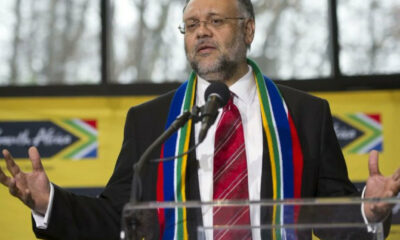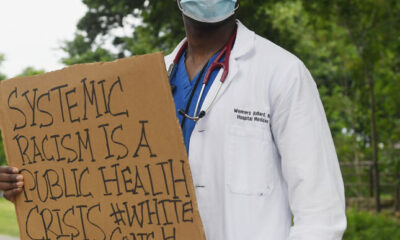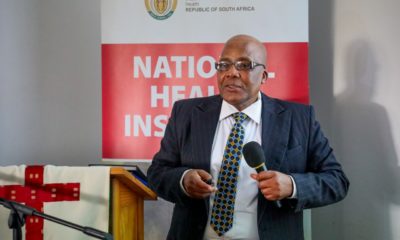News
Racial Bias Allegations Rock South Africa’s Biggest Medical Aids

South Africa’s Top Medical Aids Accused of Racial Profiling: Industry Pushes Back
A scathing report has rocked the country’s biggest healthcare funders, exposing deep-rooted inequalities, but industry leaders say the findings are fatally flawed.
A long-awaited Section 59 panel report has confirmed that black, coloured, and Indian healthcare professionals have been unfairly targeted by South Africa’s largest medical aid schemes. The report alleges these professionals faced disproportionate audits and disciplinary actions, prompting accusations of racial discrimination within the industry.
The fallout has been immediate and explosive. Health Minister Dr Aaron Motsoaledi said the report, released Monday, “opened his eyes” to a long-ignored injustice in the healthcare funding system. “We didn’t know black doctors were being cheated,” he said. “We only learned when complaints were filed with the Council for Medical Schemes in 2019.”
Report: Systemic Bias Confirmed
The independent Section 59 panel was created after widespread allegations that South Africa’s top medical aids were racially profiling black medical professionals, treating them more harshly than white counterparts.
According to the report:
-
There were clear violations of procedural fairness.
-
A power imbalance left black doctors vulnerable to biased treatment.
-
The top three medical schemes, representing 80% of scheme membership were central to the panel’s findings.
“This is not about isolated incidents,” said Motsoaledi. “It’s a pattern. A systemic problem that can’t be ignored.”
BHF: “The Findings Are Fundamentally Flawed”
The Board of Healthcare Funders (BHF), which represents the industry’s biggest players, immediately pushed back, accusing the panel of flawed methodology and misleading conclusions.
Dr Katlego Mothudi, BHF’s Managing Director, said:
“We reject the findings. They are demonstrably and fundamentally flawed.”
The BHF argued:
-
The report confuses correlation with causation.
-
Race classification methods (like surnames and practice names) were unreliable.
-
Exposure bias wasn’t properly factored in, e.g., schemes serving a majority-black population naturally interact with more black providers.
-
Adjusting for demographics and geography significantly weakened claims of bias.
Mothudi insisted that anti-fraud measures are necessary:
“South Africa’s medical schemes lose R30 billion annually to fraud, waste, and abuse. These losses hurt all members, especially from historically disadvantaged communities.”
Black Professionals Say Bias Is Clear
Despite industry denials, black practitioners say the discrimination is real and damaging. They’ve long complained of hostile audit processes, a lack of transparency, and the emotional and financial toll of being unfairly targeted.
One Johannesburg-based GP, who asked not to be named, said:
“It’s not just the audits, it’s the tone, the assumptions, the lack of recourse. You feel guilty until proven innocent.”
Reforms Underway, But Critics Remain Wary
In response to the backlash, the BHF announced a raft of reform measures, including:
-
Revised fraud protocols to reduce perceived bias.
-
Respectful audit communication standards.
-
New engagement platforms for doctors and administrators.
-
Educational outreach on billing, scheme rules, and audit rights.
“These steps are about building trust, not backing down,” said Mothudi. “We’re committed to a healthcare system grounded in integrity and fairness.”
But critics say these reforms don’t address the core issue: racial bias. Dr Motsoaledi has vowed to act on the panel’s recommendations, but has yet to outline specific actions.
While the BHF and medical aids fight back, the public and the healthcare community, await government action. The question now is whether reforms will go far enough to rebuild trust in a system many believe is rigged against them.
“This is a defining moment for South Africa’s healthcare sector,” said one health law expert. “Do we ignore the findings or start confronting the uncomfortable truths?”
{Source: BusinessTech}
Follow Joburg ETC on Facebook, Twitter , TikTok and Instagram
For more News in Johannesburg, visit joburgetc.com



























